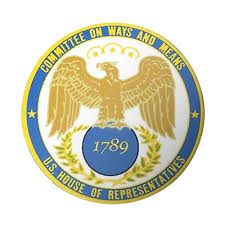 The Division of Nephrology is proud to report that Missouri Representative Jason Smith, R-Mo, joined by John Lewis, D-Ga., Gus Bilirakis, R-Fla., and Kurt Schrader, D-Ore, has introduced legislation that would give end-stage renal disease patients the choice to enroll in Medicare Advantage plans. H.R. 5659, the “Expanding Seniors Receiving Dialysis’ Choice Act of 2016,” or ESRD Choice Act, would remove current government rules and restrictions preventing ESRD patients from accessing the plans. The bill was introduced on July 7, in the second session of the 114th Congress.
The Division of Nephrology is proud to report that Missouri Representative Jason Smith, R-Mo, joined by John Lewis, D-Ga., Gus Bilirakis, R-Fla., and Kurt Schrader, D-Ore, has introduced legislation that would give end-stage renal disease patients the choice to enroll in Medicare Advantage plans. H.R. 5659, the “Expanding Seniors Receiving Dialysis’ Choice Act of 2016,” or ESRD Choice Act, would remove current government rules and restrictions preventing ESRD patients from accessing the plans. The bill was introduced on July 7, in the second session of the 114th Congress.
A summary of the bill, written by Ways and Means staff, is provided below:
Currently, more than 640,000 Americans live with kidney failure, known as End Stage Renal Disease (ESRD). ESRD beneficiaries are among the most vulnerable and kidney failure affects Americans of all ages. The only real treatments available are kidney transplants, or renal dialysis. Due to the limited number of kidneys available for transplantation, most individuals with ESRD receive dialysis treatments. The overwhelming majority of people with kidney failure, regardless of their age, rely on Medicare for their life sustaining dialysis treatments.
Nearly 32 percent of seniors currently choose managed care plans under the Medicare
Advantage (MA) program, with choose being the key word. Currently however, beneficiaries that suffer kidney failure prior to making that choice are locked into fee-for-service. For this vulnerable population, integrated or managed care should be available as an option to all. MA offers better integrated care, flexibility, and financial protections for beneficiaries, but ESRD patients are the only group of beneficiaries specifically denied enrollment in MA plans. MA includes integrated care models that allow plans the flexibility to distribute clinical resources to address unique patient needs. Integrated managed care models have shown to be valuable tools for patients that suffer from multiple chronic conditions. The low-income population also enjoys the benefits of MA’s maximum out-of-pocket cost that protect beneficiaries from catastrophic health care costs.
To this end, Representatives Jason Smith (MO), John Lewis (GA), Gus Bilirakis (FL), and Kurt Schrader (OR) introduced the Expanding Seniors Receiving Dialysis’ Choice Act of 2016, or the ESRD Choice Act. This simple, common sense legislation would remove the current restrictions on ESRD beneficiaries that prevent them from switching into a managed care Medicare Advantage plan. Under the ESRD Choice Act, ESRD beneficiaries will finally have the same options to choose a plan that best fits their needs and extends the benefits of MA to ESRD patients that are currently available to other beneficiaries.
July 12, 2016